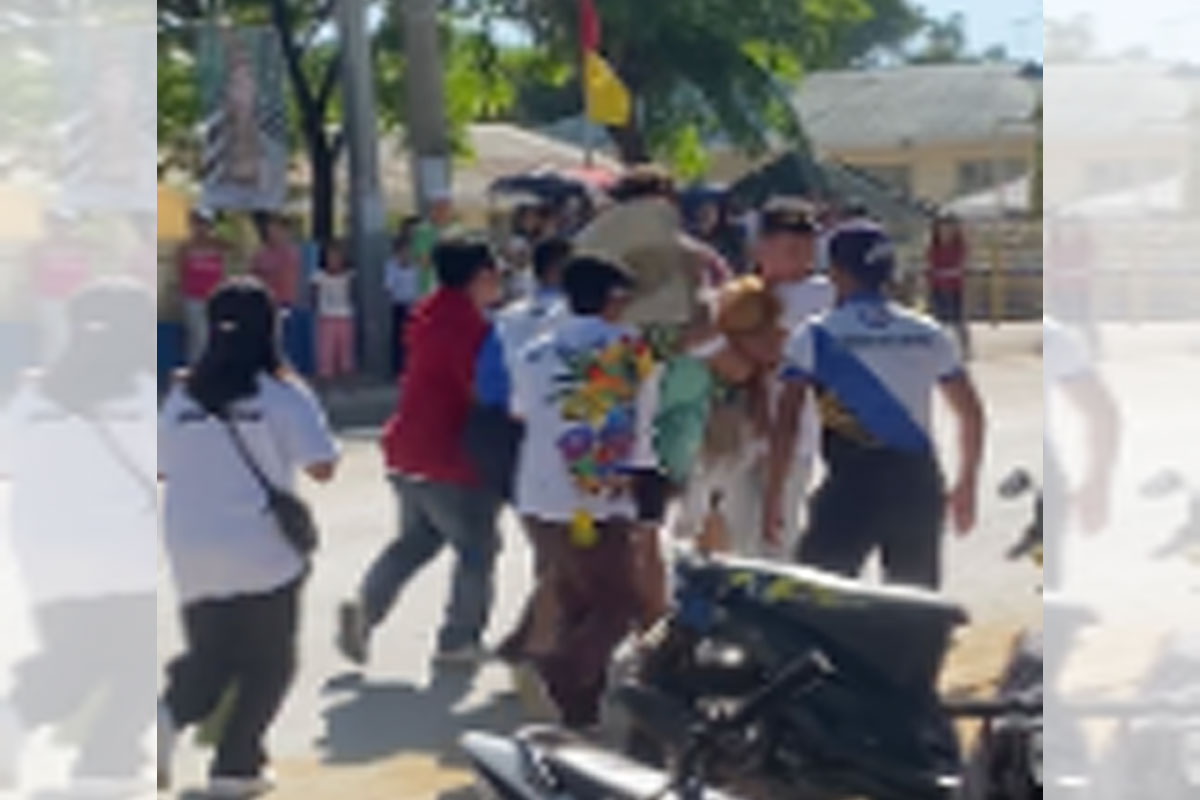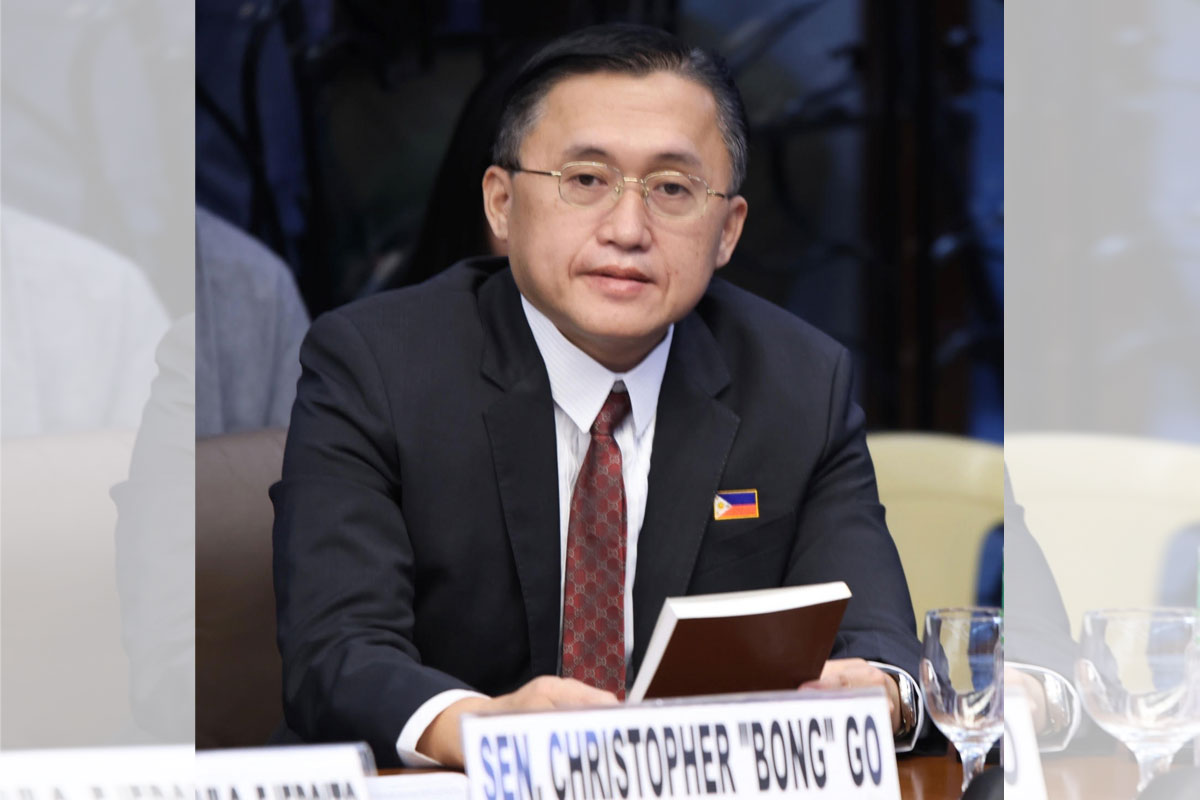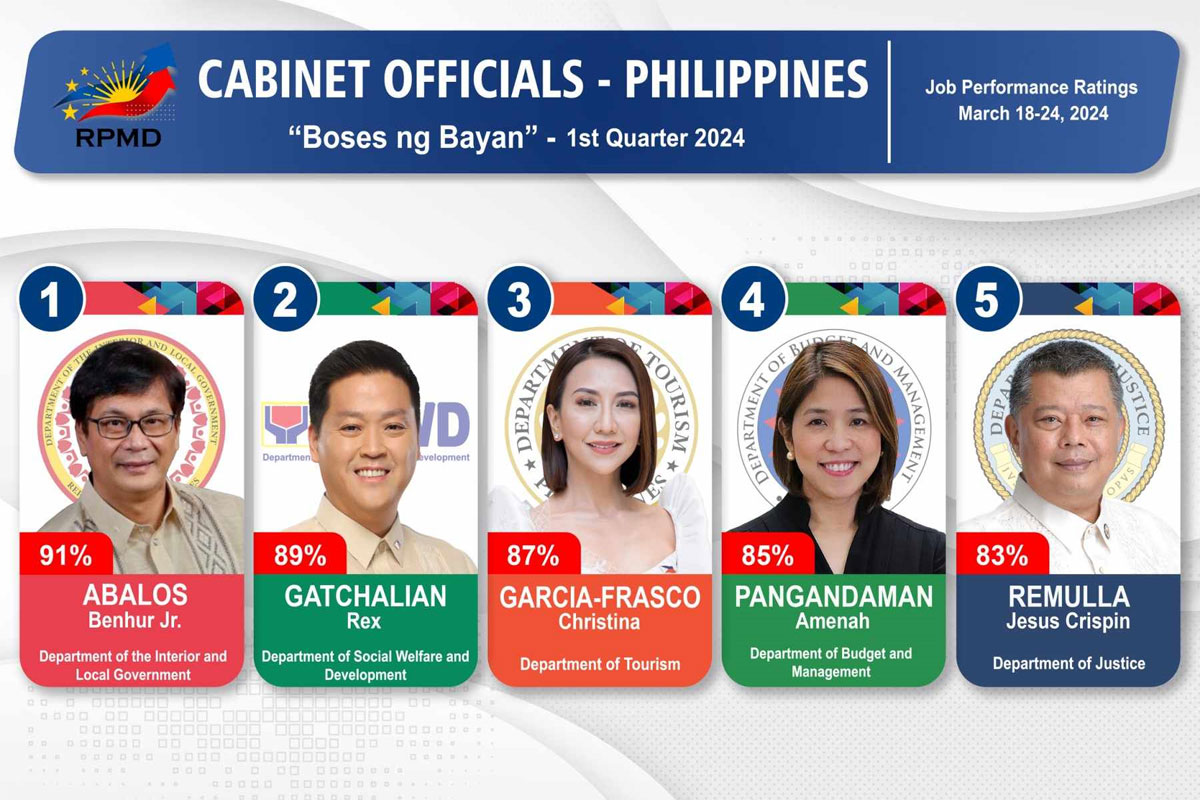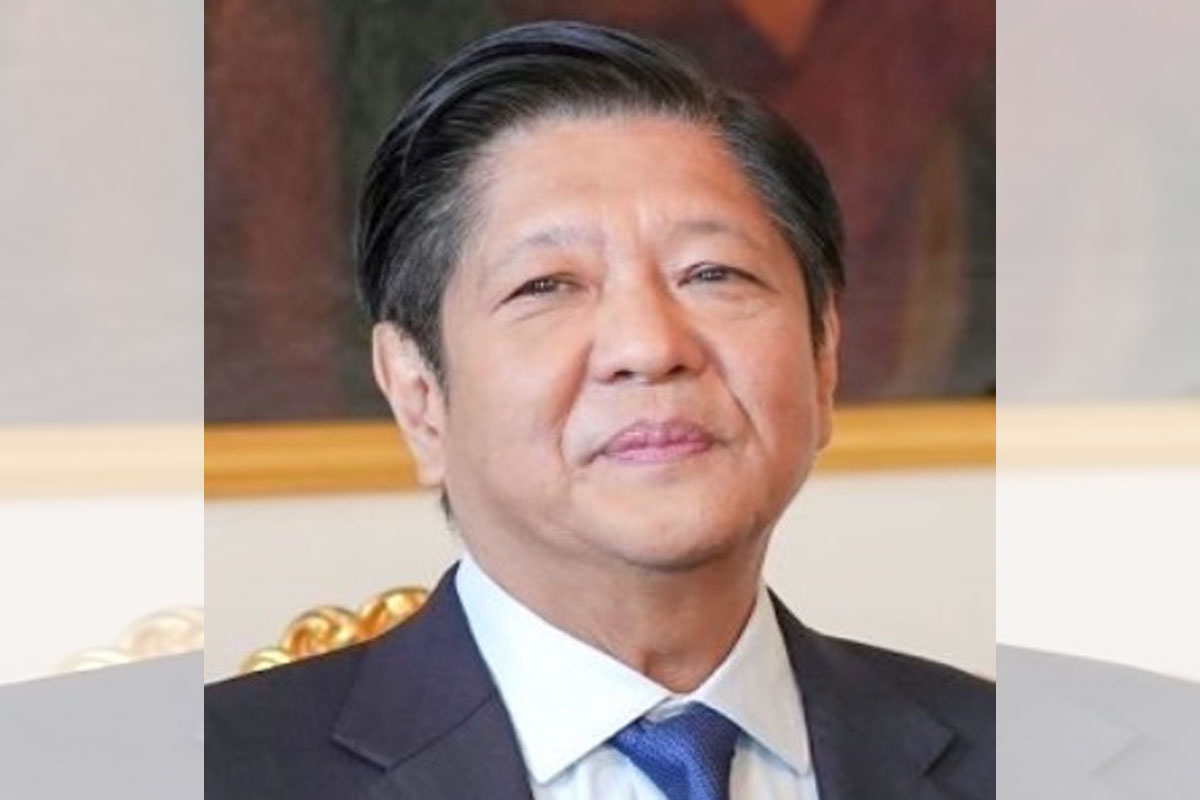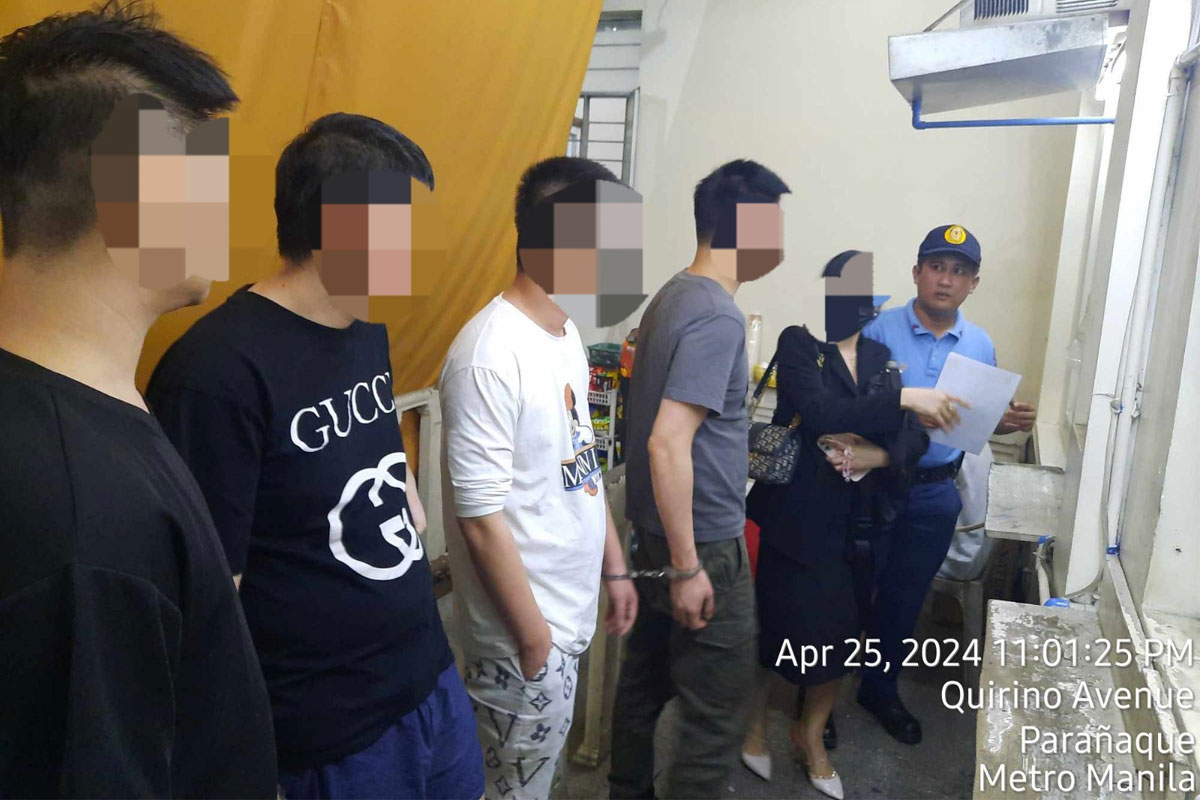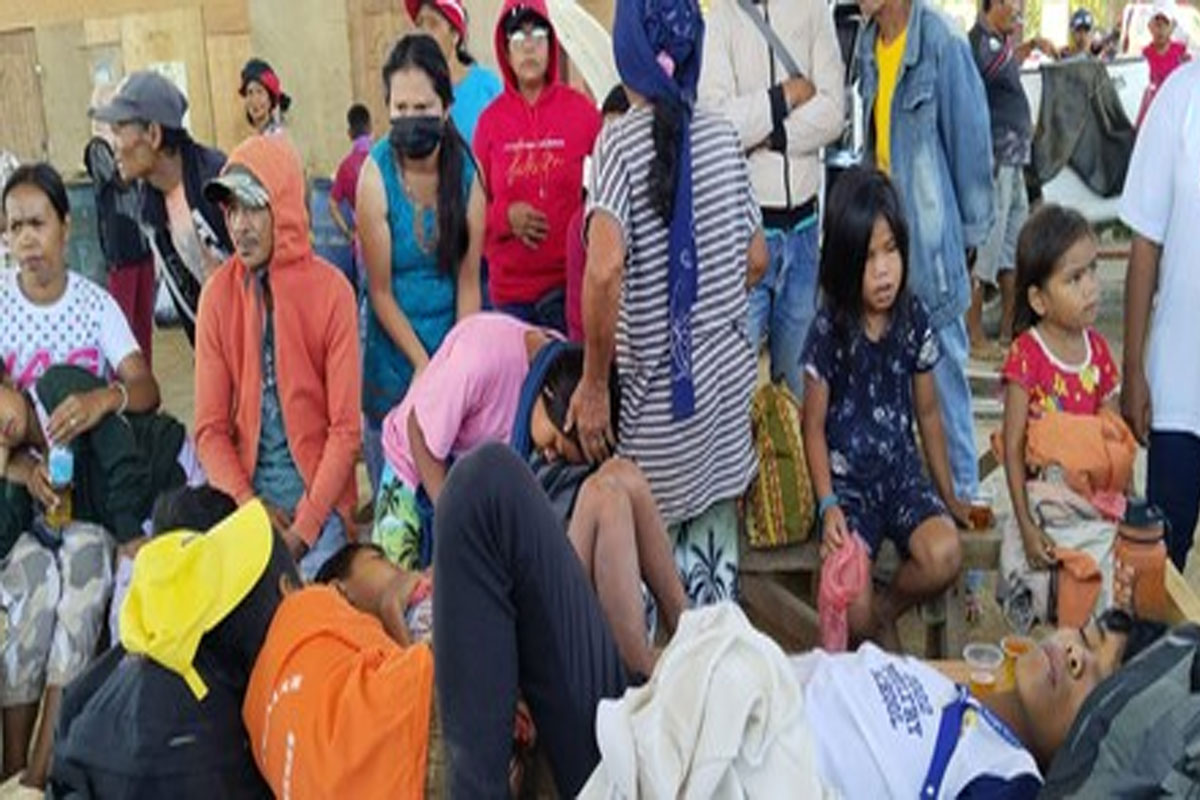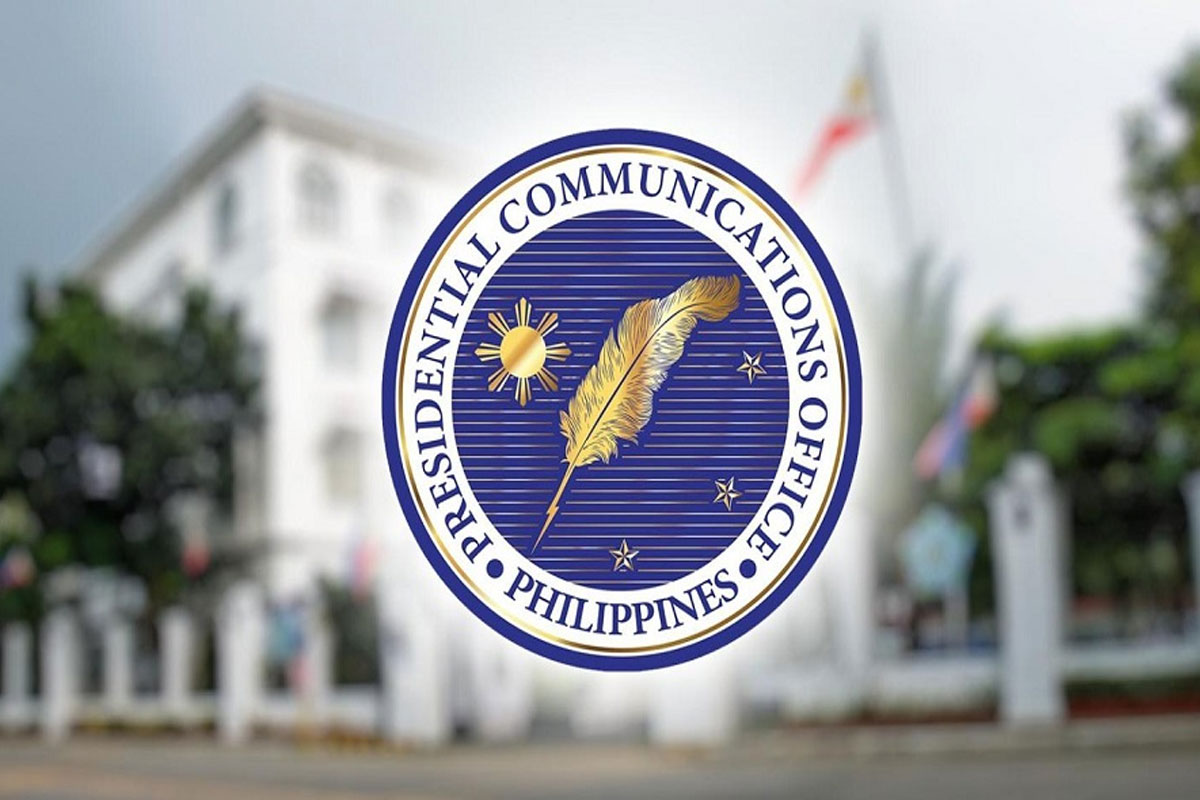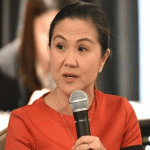
Medical reserve force pressed
FOUR legislators from Camarines Sur led by Rep. LRay Villafuerte are seeking the creation of a reserve force of highly skilled and medically trained professionals and volunteers who can be mobilized at once to help the government enhance the national capacity to meet surges in the demand for our healthcare system and provide assistance as may be needed in times of health crises such as the lingering coronavirus disease-19 (COVID-19) pandemic.
As proposed in House Bill (HB) No. 1093, the would-be Medical Reserve Corps (MRC) shall be composed of medical graduates, licensed and retired physicians, licensed allied health professionals and registered nurses who may be called upon and mobilized to assist the national and local governments in their functions related to addressing the urgent needs of the country’s healthcare system during times of health crises or emergencies.
“It is during times of national health emergencies that the members of the Medical Reserve Corps may be called upon and mobilized to assist the national government and the local government units in their functions related to addressing medical needs. This measure allows our hospitals and medical facilities to handle the extreme demand for patient care in times of disaster and health emergencies,” said Villafuerte and his co-authors.
His bill co-writers are Representatives Miguel Luis Villafuerte and Tsuyoshi Anthony Horibata and Bicol Saro Rep. Nicolas Enciso VIII.
Villafuerte, who filed a similar measure in the previous Congress, said the lack of medical personnel during the initial stages of the country’s fight against COVID-19 has underscored the urgency for the Marcos government to establish an MRC to ensure that the healthcare system is not overwhelmed during health emergencies and threats.
Under the bill, this proposed MRC shall be composed of the following:
Medical students who have completed four (4) years of medical course, graduates of medicine, and registered nurses who may be issued by the Department of Health (DOH) Secretary with a limited and special authorization to render medical service pursuant to Republic Act (RA) No. 2382 or the Medical Act of 1959;
Licensed physicians, including those who are retired and those who are no longer practicing in the hospital setting. The DOH may coordinate with the accredited integrated organization of professionals or accredited professional organization of physicians for the engagement of these private practitioners; and Allied health professionals.
Under HB 1093, the MRC members shall be organized, trained, developed and maintained so as to ensure their readiness to immediately respond to the government’s call to service.
As defined in RA 11332, otherwise known as the “Mandatory Reporting of Notifiable Diseases and Health Events of Public Health Concern Act,” a public health emergency refers to an occurrence or imminent threat of an illness or health condition that is caused by any of the following:
Bio terrorism;
Appearance of a novel or previously controlled or eradicated infectious agent or biological toxin;
A natural disaster;
A chemical attack or accidental release;
A nuclear attack or accident; or
An attack or accidental release of radioactive materials.
Public health emergency may also refer to any occurrence that poses a high probability of any of the following:
A large number of deaths in the affected population;
A large number of serious injuries or long-term disabilities in the affected population;
Widespread exposure to an infectious or toxic agent that poses a significant risk of substantial harm to a large number of people in the affected population;
International exposure to an infectious or toxic agent that poses a significant risk to the health of citizens of other countries; or
Trade and travel restrictions.
The bill directs the DoH to prescribe a continuing training program for the MRC members and fresh recruits, through written, practical and simulation activities on various aspects of health emergency management and response and on the different health emergency situations and scenarios, such as natural and man-made disasters, epidemics, pandemics and other threats to public health.
To this end, all recruits must undergo:
Compulsory basic training for a period to be set by the DoH on disaster and health emergency response, the organization and structure of the MRC, and such other areas as may be prescribed by the DoH. Recruits shall be given compensation for their attendance thereto; and Continuing training and other activities to be conducted in coordination with relevant and qualified agencies in the private and public sector, including the Armed Forces of the Philippines (AFP) and the National Disaster Risk Reduction and Management Council (NDRRMC), to improve and reinforce skills. All registered members shall undergo continuing training on a regular basis to upgrade their proficiency.
The successful completion of the compulsory basic training shall be a requisite for admission into the MRC, HB 1093 authors proposed, and the successful completion of activities in the continuing training program shall be a requisite for promotion of members within the MRC.
In case of a declaration of a state of war, state of lawless violence or state of calamity, the bill authors proposed that the DOH, by its own initiative, may recommend to the President the nationwide mobilization of the MRC, as a complement to the AFP Medical Corps.
The bill authorizes the DoH Secretary to enlist the AFP to provide expertise on the organization and structure of the MRC for efficient, effective and swift deployment, as well as for training of the MRC recruits on disaster and emergency response.
The DoH Secretary may recommend, too, to the President the enlistment of the AFP to supplement the mobilized MRC for the purpose of providing logistics and manpower for large-scale operations in times of public health emergency, contact-tracing and monitoring of suspected cases, enforcement of quarantine measures in specific areas or facilitating the transport of emerging infectious diseases patients, and for such other related purposes.
The bill mandates the establishment in each province as many mobilization centers as needed to which members of the MRC shall report to when their mobilization is ordered.
Mobilization centers may be any establishment or facility that can adequately house the MRC members, and their equipment and supplies during the period of deployment, including multi-purpose halls, gymnasiums and other similar structures, based on other requirements that the DoH shall prescribe.
The DoH shall, in consultation with local government unit (LGU) executives, prescribe the location of the mobilization centers. The local executives, in turn, shall disseminate to the widest extent possible information to the public on the location of these MRC centers.
Under HB 1093, no MRC member shall be held liable for the death of or injury to any person or for the loss of, or damage to, the property of any person where such death, injury, loss or damage was proximately caused by the circumstance of an actual public health emergency or its subsequent conditions, or the circumstances of the formal exercise or training if such formal exercise or training simulates conditions of an actual emergency.
It directs the Insurance Commission (IC) to develop public health emergency-specific malpractice insurance policy or modify existing policies that would protect MRC professionals’ efforts from any legal liability, so they can respond in good faith during public health emergencies.
Upon the expiration of the period of deployment, without an extension having been requested and approved by the DOH, members of the MRC who are deployed pursuant to a public health emergency shall be discharged from the performance of their duties, according to the bill.
The deployment may also be terminated earlier upon a determination by the DOH, in consultation with the requesting national government agency or LGU, that such deployment is no longer required.
The bill states that any MRC member who fails to respond to the order of deployment without any justifiable reason despite due notice, is required to reimburse the total expenses incurred by the government in the concerned member’s recruitment, selection, training and compensation, as may be determined by the DoH.
It provides that MRC members shall be accorded protection under existing labor laws and standards and other relevant occupations, safety, environmental, and social legislation.
As for compensation, HB 1093 provides that MRC members who render service shall receive all the pay and allowances, medical care, hospitalization, other privileges and benefits during the period of mobilization as prescribed by law or regulation.
They shall also continue to receive all pay, allowances, and other privileges and benefits from their regular employment during the mobilization period in accordance with law.
Villafuerte was one of the principal authors of RA 11712 or the Public Health Emergency Benefits and Allowances for Healthcare Workers Act that mandated the grant of sickness and death benefits to both healthcare workers (HCWs) and non-HCWs in the health sector during the pandemic or future national health emergencies.
He said the grant of such extra pay to our medical frontliners was provided for in the Bayanihan to Heal as One Act (RA 11469) and Bayanihan to Recover as One Act (RA 11494), which the Congress had passed to strengthen the country’s Covid-19 response and ensure state support for pandemic-hit sectors.
“The expiration of the effectivity of the Bayanihan 1 and Bayanihan 2 laws had stood in the way, however, of the full implementation of the Covid-related benefits for our medical frontliners, hence the necessity of enacting RA 11712 into law to make sure that our healthcare workers are able to get their monthly risk allowance for as long as the country remains in a state of public health emergency,” said Villafuerte, who was the principal author in the House of both the Bayanihan 1 and Bayanihan 2 laws.
Under RA 11712, frontline HCWs and non-HCWs identified to be at high risk areas for COVID-19 are each entitled to P9,000 per month in extra benefits; and those at moderate- and low-risk shall places will each get a respective monthly allowance of P6,000 and P3,000.
Such benefits are retroactive to July 1, 2021, according to this law co-authored by Villafuerte.


